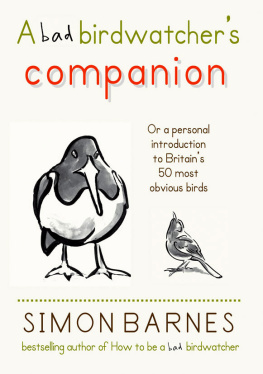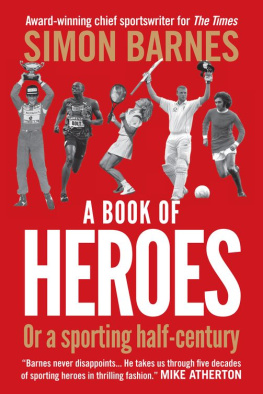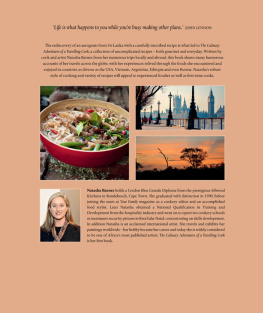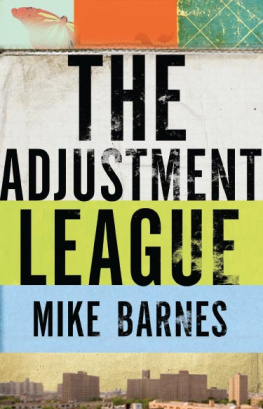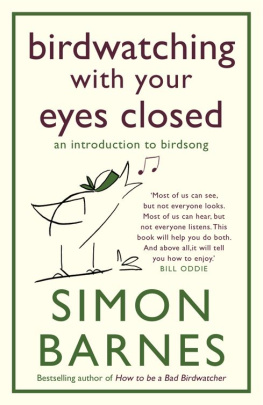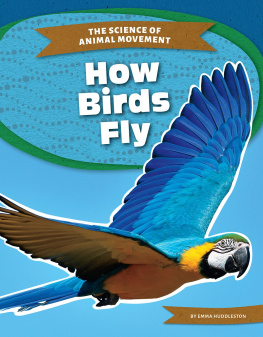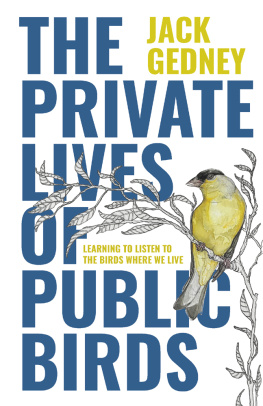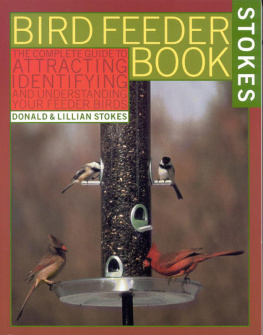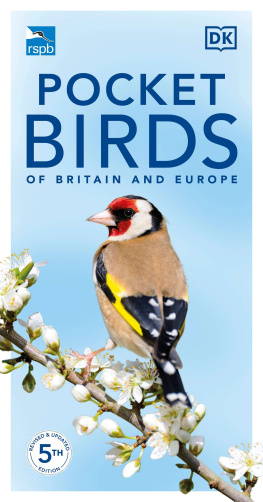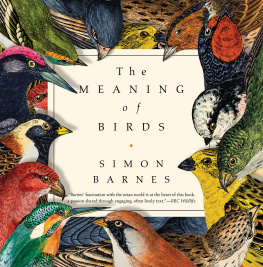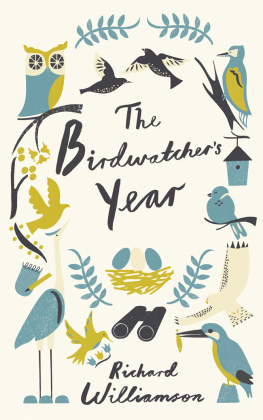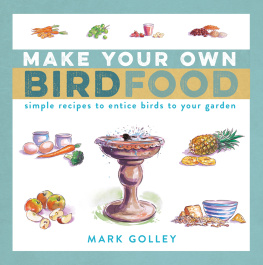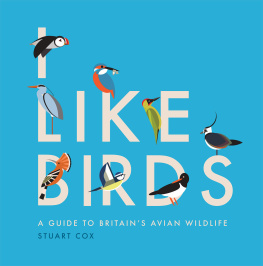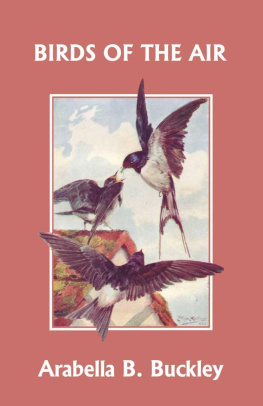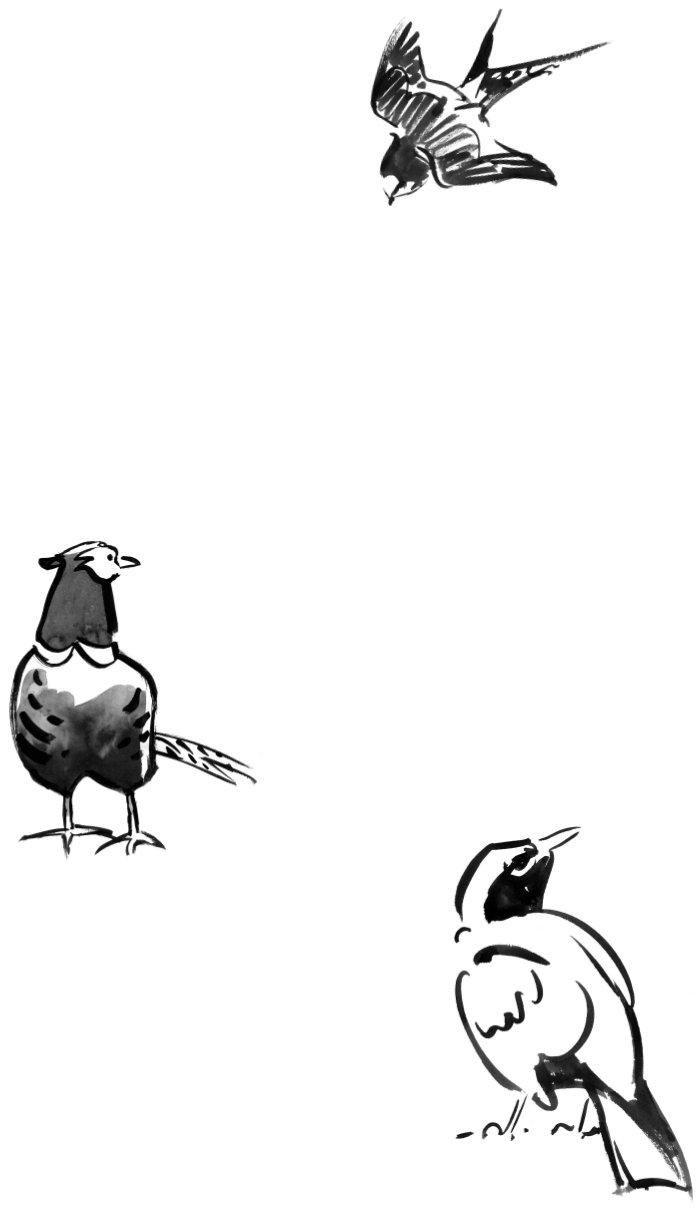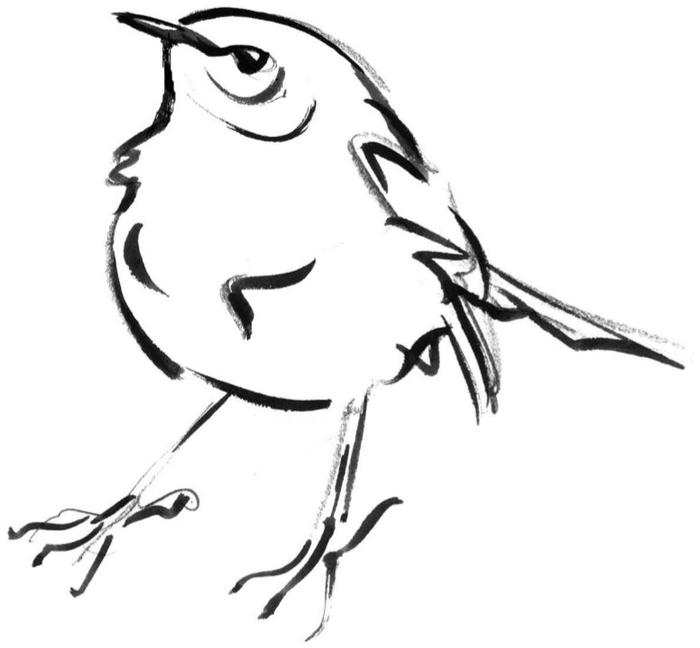Praise for Simon Barness bestselling
How to be a bad birdwatcher
A witty, perceptive book, thoughtful, instructive and full of simple wisdom. Daily Mail
A delightful ode to the wild world outside the kitchen window A book which fills you with that warm feeling that a shared love conquers all. Daily Telegraph
How to be a bad birdwatcher is a work of pure enthusiasm for the cause of birds and us. Unstuffily, democratically, this book tries to help us derive good from things near at hand, everywhere, and it succeeds. The Spectator
Ultimately, like all polemical texts, How to be a bad birdwatcher seeks to convert the reader to a cause. It does so with considerable success, and reveals that Barnes is neither a good nor a bad birdwatcher simply a fulfilled and very lucky man. Stephen Moss, Evening Standard
An amiable mix of memoir, the merits of binoculars, Charles Darwin, laughing gulls and how watching birds compares with his day job of watching England footballers. The Observer
For WCB with memories of coal tits,
Fullerborns longclaw and Pearsons cisticola
Contents
Useful information
A bad birdwatcher is me, a bad birdwatcher is you. A bad birdwatcher is anyone who looks at birds and feels a lift of the heart but doesnt have to do anything about it. If you dont take accurate field notes; if you dont keep a bird diary; if you are a mite hazy on the differences between a first winter lesser black-backed gull and a second winter herring gull; if you dont know what a rachis is, still less a supercilium; if you dont own a telescope; and above all, if you dont keep lists, then you are a bad birdwatcher. That is to say, you are a bad birdwatcher if, despite not doing all these things, your heart still lifts at the sight of a good bird.
Many bad birdwatchers own a book about the identification of birds, something called a field guide. Many dont. And many of those that do own one dont often open it. This is because a field guide, even the most generous and modest and straightforward, is a deeply intimidating object. It is too confusing. It contains too many birds. A bad birdwatcher simply doesnt know where to start.
Start here. Read this book, and be formally introduced to Britains most obvious birds. And I hope, as you begin to know these 50 birds, that you will begin to understand them. Understand what they are doing out there and why: why there are so many different species, why some are bold and some are shy, why some are fierce and some are fearful, why some are bright and some are dull, why some are loud and some are quiet, why some are common and some are rare. I hope that, by reading this book, you will begin to understand the meaning of birds; and to realise that this is the most perfect and beautiful way towards the beginning of an understanding of the meaning of life.
And you can begin right now: by looking out of the window and seeing a bird. And feeling that lift of the heart.
But what does a red breast mean to a robin?
A red breast is not just the way a human can recognise a robin when it comes a-calling, or when it sits on a spade or a Christmas card. The red breast is not just a bit of chance colouration. No: the red breast is the core of the robins being. The red breast is the love, the honour and the glory of a robin.
A robin is conspicuous because of its red breast. Have you noticed that a robin positively flaunts it? It is as if he is telling the world: For Gods sake, Im a robin!
It is quite clear, then, that the red breast doesnt just have a meaning for a birdwatchers. It also has a profound meaning for the bird. But hes not talking to birdwatchers. Hes talking to robins.
Robin
Where to look: gardens, spade handles, Christmas cards
When to look: all year
What to look for: red breast
What to listen for: thin, pretty song
And the red breast is how robins recognise each other: for love and for war. Both sexes have the red breast: both flaunt it. It can be a warning, it can be a come-on. Its meaning is both simple and complex , and at its heart is the statement: Im a robin! Deal with it!
A robin stoked up to the eyeballs on the fevers of spring will react strongly to almost anything red. Robins have been observed attacking a bunch of red feathers. Chris Mead, a great ornithologist, noted robins displaying in response to his own spectacular red beard.
There is a 10 per cent chance that the robin who sits on your spade is a murderer. Perhaps even a far greater chance. Robins love to hold a territory, and they will defend it ferociously. Serious punch-ups involve pecking at eyes and legs. Robins can blind each other; and an estimated ten per cent of fights end up in death for one of the combatants.
That is not a reason to start calling robins vicious, or nasty. It is simply how robin society works. They operate by robin ethics, not human ethics. It is a tough world they live in, and only the best of them get to hold territory, breed, and produce young who will, in their turn, go on to breed. That, in brief, is the robins goal in life; and, if you like, the goal of every other living thing on this planet.

